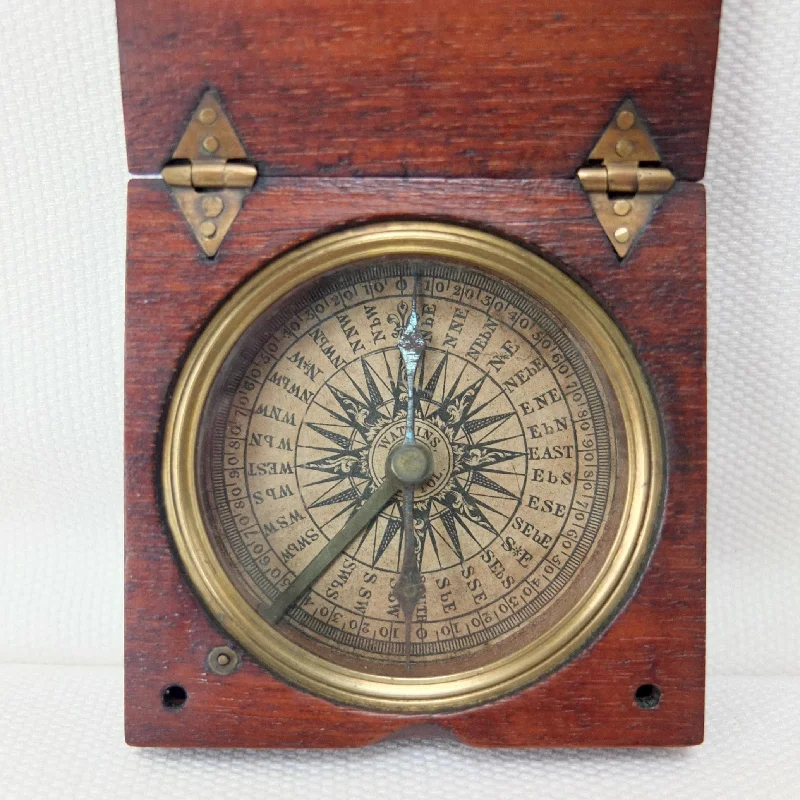A very rare William Watkins of Bristol mahogany cased pocket compass, dating from around 1815, and signed 'Watkins, Bristol'. William Watkins was listed in Bristol directories between 1803 -1832, initially as a 'Mathematical Instrument Maker' and later as a 'Manufacturer of Mathematical, Philosophical, Optical and Nautical Instruments'. He was in business at several Bristol addresses during his career, including St. Michael's Hill, 18 Clare Street (1812), 21 Clare Street (1813), and at The Lord Nelson, 16 St. Augustine's Back (1814-32). He was also a member of the Bristol Society of Merchant Venturers.
This type of wooden cased compass was produced from the end of the 18th century to the early 19th century. This example has an ornate Georgian style of compass card design. It also has a distinctive Georgian compass needle. The hand-made triangular hinges are typical of the early Georgian period. The compass is in full working order and finds North well. With a paper card, flat needle, and brass pivot. It also has a transit lock, operated by a small pin and lever when the lid is closed. This compass is rather unusual in that the lid has two additional brass fastening pins at the front edge. These pins can be seen in other examples of Watkins' work and seem to be a unique feature that is not found in other mahogany pocket compasses of the period.
Condition:
In very good condition, and full working order, with just the normal signs of age and use. It points strongly to North. The wooden case is in very good condition. The original glass is in good condition, with a few minor marks. The paper compass card is in good condition and is signed 'Watkins, Bristol'. There is some wear to the blued finish of the needle. The transit lock is working well, locking the needle when the lid is closed. The lid closes well with strong hinges and is secured by a '7' shaped clasp, and Watkins own unique brass pin fasteners at the front corners of the lid.
Dimensions: 65mm x 65mm x 20mm

